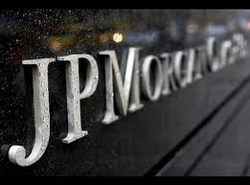Updated: June 19, 2012 (Initial publication: June 14, 2012)
Releases : Neutrality in Systems of Economic Regulation

TRANSLATED SUMMARIES
ENGLISH
"Acting in a neutral way" is an oxymoron. "Companies often require however that States use their powers in a neutral way (eg tax neutrality). In regulated sectors, some are right or even duty , of not being neutral. Firstly, it is the State, which requires the market for other purposes, other temporalities and other values. Secondly, they are also the "crucial operators", which are sort of regulators of second degree, such as transmission system operators or companies capital markets firms. The difficulty increases when the systeme requires neutrality of regulators and judges, when first build economic policy and the second create jurisprudence. Their consistency, impartiality and rationality can create an objectifiable neutralitys
FRENCH
«Agir de façon neutre» est un oxymoron. «Les entreprises ont souvent besoin, cependant, que les États utilisent leurs pouvoirs de manière neutre (neutralité fiscale par exemple).
Dans les secteurs réglementés, certains ont le droit ou même le devoir de ne pas être neutre. Tout d’abord, c’est l’État, qui insère le marché à d’autres fins, d’autres temporalités et d’autres valeurs. En second lieu, ils sont aussi les «opérateurs crucial», qui sont des sortes de régulateurs du second degré : par exemple les opérateurs de réseaux de transport ou de entreprises de marchés financiers.
La difficulté augmente lorsque le systeme économique et politique exige la neutralité des autorités de régulation et des juges, alors que les premiers construisent la politique économique et les seconds construisent la jurisprudence. Le respect qu'ils doivent avoir de l'impartialité et d'une rationalité suffisamment objectivables pourra permettre cette objectivité requise.
Updated: June 19, 2012 (Initial publication: June 14, 2012)
Contributions

Updated: May 18, 2012 (Initial publication: May 12, 2012)
Breaking news

